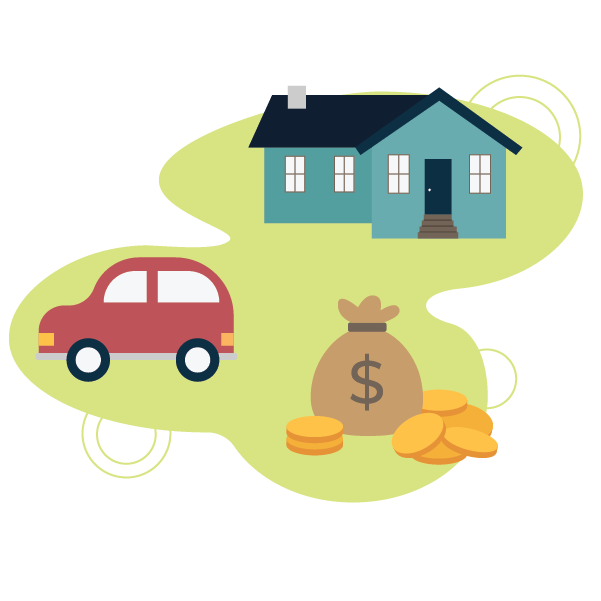Is it legal to run a business out of my home?
Written by Law on Call Staff |Reviewed by Daren J. Harris | Last Updated November 17, 2025
Running a home-based business is legal if you follow the rules. Zoning laws, business licenses, and tax requirements all matter, and ignoring them can lead to fines or unnecessary stress.
This guide explains the key legal considerations, what’s allowed, the paperwork you may need, and how to protect your personal assets. Our team can help you navigate every step.
Main Takeaways
- You can legally run a home business if you follow zoning rules, obtain required permits and licenses, and respect any HOA or lease restrictions.
- Having the right business insurance isn’t always legally required, but it protects your personal assets and helps keep your business compliant.
- Keeping accurate records and tracking expenses ensures your home business meets tax laws, including deductions like a home office.

Legal Basics of Starting a Home Business
Making sure certain pieces are in place is what turns a home-based venture from a side project into a legally recognized business. By understanding the rules upfront, you can avoid costly penalties and build your business with confidence.
Here are a few legal considerations when starting a home-based business:
- Local governments may require a business license, zoning approval, or permits tied to your specific industry.
- Additional protections, like business insurance and separating personal and business finances, can limit your liability.
Everything your small business needs.
Required Zoning and Licenses
Before you start a home-based business, it’s important to confirm that your setup is legally allowed where you live. Local governments, landlords, and HOAs often impose specific rules on what kinds of work can be done in a residential space. You’ll likely also need one or more licenses to legally operate.
City and County Zoning Rules
Most cities and counties have rules about running a business from home. They may limit things like customer visits, signage, parking, or how much of your house you can use for work.
For example, Tucson, Arizona allows home businesses to use only 25% of a residential property and prohibits the visibility of business goods from the street. Check your local zoning laws so you don’t risk fines or being shut down.
HOA and Lease Restrictions
If you rent or live in a neighborhood or community with a homeowners’ association, your lease or bylaws may have their own limits. These can include rules about parking, deliveries, storage, or inventory. Violating any of these terms could put your lease or HOA standing in jeopardy, so it’s worth looking into the details.
Business and Professional Licenses
Many states require you to get a basic business license to run a business, home-based or otherwise. Depending on what you do, you might also need specialty paperwork like a food handler’s permit or childcare license.
Insurance for Home Businesses
Even the smallest home business carries risks that insurance can help mitigate. Your regular homeowners policy usually won’t cover business activities, so if a client slips on your front step or your laptop full of client files gets stolen, you could end up having to pay out of pocket. You may not be required by law to carry insurance, but going without it can create serious legal headaches.
The main types of coverage to consider are:
- General liability. Covers accidents or injuries that happen at your home (like a delivery driver tripping on your walkway) or damage caused by your business.
- Professional liability. Protects against mistakes in the services you provide, like a missed deadline or faulty advice that costs a client money.
- Property coverage: Safeguards your business equipment and inventory stored at home, from laptops and printers to craft supplies or backstock.
Legal Tax Requirements for Home Businesses
Running a home business legally means following tax rules and keeping accurate records. This is true whether you started an LLC or operate as a sole proprietor. Ignoring your tax burden can lead to fines, audits, or other legal problems.
Here are the key tax areas to keep in mind:
EIN Requirements
An Employer Identification Number (EIN) is like a Social Security number for your business. You’ll need one if you have employees, but even if you don’t, many banks and tax filings require one. Getting an EIN helps you operate your home business legally and separate your personal and business finances.
Home Office Deductions
If you use part of your home exclusively for work, you may qualify for a home office tax deduction. This can include a portion of rent, mortgage, utilities, internet, or office supplies.
Just keep detailed records so you can back up your claim. If you’re audited, the IRS requires proof if you claim these deductions, and proper documentation helps you stay in the clear.
Sales Tax Rules
Sales tax isn’t just for storefronts. If you sell products or services online, many states require you to collect and remit sales tax based on where your customers live.
An Etsy shop owner shipping goods to multiple states will likely face more complex rules than a freelance consultant billing local clients. Do your research early on so you don’t find yourself in legal trouble later.
Frequently Asked Questions
Some residential zones allow client visits, but others limit traffic, parking, or signage. If you’re unsure, check your city’s home occupation rules and any HOA or lease restrictions.
Yes, but check zoning rules and local labor laws. Hiring employees may also affect your insurance needs and tax filings.
Generally, yes, but some HOAs and residential zoning ordinances limit commercial delivery vehicles or restrict delivery hours. Make sure your setup doesn’t violate local rules.
Absolutely. But even if you never have clients visit, you may still need a business license and proper insurance. Your state may also have rules for home-based online sellers.
